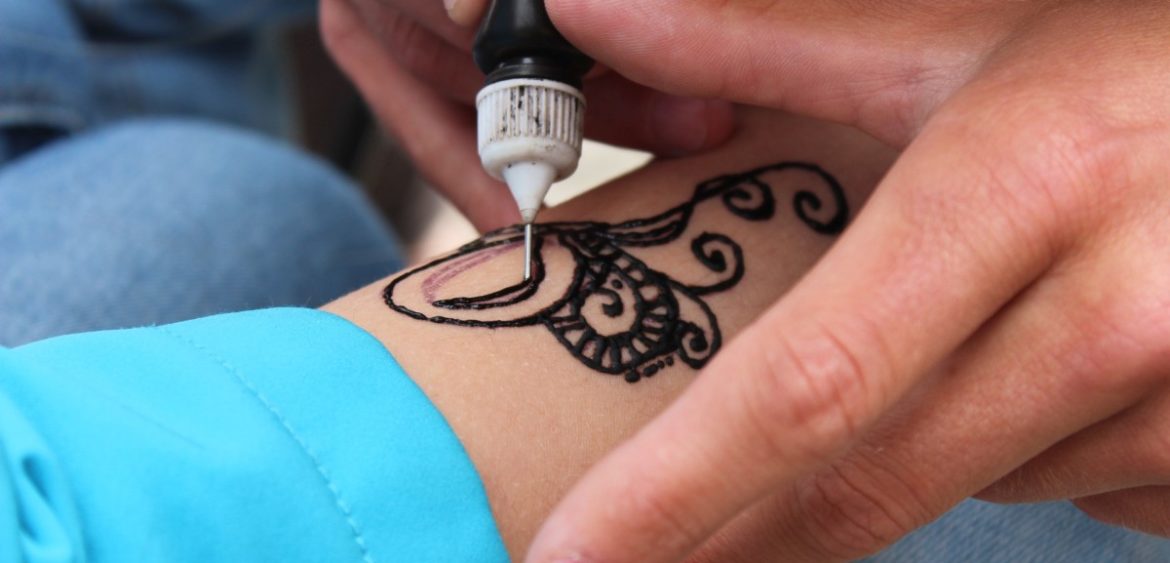As you jet off on your summer holidays, it’s worth remembering of the risks of so-called ‘Black Henna’ Temporary Tattoos which can cause you to develop allergies to hair colorants.
While on holiday, many people opt to have a fun temporary ‘black henna’ tattoo applied on the beach or by the pool. Henna extract is orange-red in colour; however, some tattoo artists offer a much darker ‘black henna’. There is no such thing as ‘black henna’ and so-called ‘black henna’ temporary tattoos can cause painful short and long-term damage to skin and may cause people to develop an allergy to hair colorants which will prevent them from colouring their hair in future.
So what is in ‘black henna’?
The truth is that so-called ‘black henna’ temporary tattoos are not likely to be henna at all, but may contain a substance called PPD (paraphenylenediamine). This use of PPD in tattoos and at such high concentrations is illegal in the EU, and it can be very harmful if applied direct to your skin in these types of temporary tattoos.
PPD – what does it do?
PPD is used safely and legally as an ingredient in hair colorants, but when applied directly to the skin in a temporary tattoo it can leave people with a swollen, sore, red ‘burn’. It can also sensitise people to PPD, triggering a painful allergic reaction called ‘contact dermatitis.’
It doesn’t stop there. If clients have been sensitised to PPD through a ‘black henna’ temporary tattoo, they are very likely to react to PPD elsewhere in future, such as when you use hair colorants. Hair colorants themselves are regulated under the stringent EU cosmetic safety regulation and are perfectly safe to use when the instructions are followed carefully and skin testing is done 48 hours before hand.
But because an allergy is for life, you may never be able to use commonly used hair colours on your scalp in future without risking a bad reaction.
Reactions
If you have suffered a reaction from a temporary tattoo, please consult your doctor. You may be referred to a dermatologist who can investigate the cause of the reaction by carrying out a patch test. This will identify what ingredient has caused the problem so you can steer clear of it in the future.
It is also very likely that you will not be able to colour your hair with many types of hair colorants following a reaction. The large amount of people who have had a so-called ‘black henna’ temporary tattoo means that ensuring we carry out an Allergy Alert Test ahead of colouring a client’s hair is absolutely essential.
To find out more, check out CTPA’s website and hear from Katy and Salih who both experienced a reaction to a ‘black henna’ temporary tattoo.
CTPA – The Cosmetic, Toiletry & Perfumery Association
With thanks to our National Hairdresser’s Federation for keeping us up to date.



Sorry, the comment form is closed at this time.